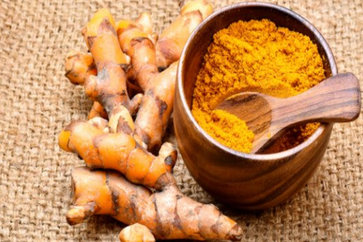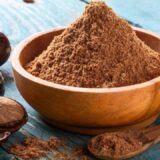Carob: Health Benefits, Nutritional Value & Culinary Uses
Carob is often referred to as a “chocolate alternative” because it has a naturally sweet taste, without the bitterness of cocoa. Unlike chocolate, carob is caffeine-free and contains no theobromine (the stimulant found in chocolate), making it a popular choice for those seeking a healthier or milder option.

It is also lower in fat and high in fiber, making it a nutritious ingredient in a variety of food products, including baked goods, snack bars, and drinks. Carob is gaining popularity as a plant-based, gluten-free, and vegan alternative to chocolate in health-conscious and allergy-friendly diets.
In addition to its culinary uses, carob has been utilized for centuries for its medicinal properties, particularly for digestive health. Its cultivation is also considered environmentally sustainable due to the tree’s drought tolerance and minimal water requirements.
What is a Carob?
Carob (Ceratonia siliqua) is the edible pod of the carob tree, a flowering evergreen native to the Mediterranean region. The tree belongs to the legume family and produces long, flat, brown pods that contain a sweet, sticky pulp.
This pulp is dried, ground, and used in various forms such as carob powder, carob syrup, and carob chips.
History and Origins
The carob tree has a long and storied history that dates back thousands of years. It is believed to have originated in the Mediterranean region, where it was cultivated by ancient civilizations such as the Egyptians, Greeks, and Romans.
Carob pods were used not only as a food source but also for medicinal purposes. In ancient Egypt, carob seeds were even used as a weight measurement standard for precious metals and stones.
The Greeks and Romans valued carob for its digestive benefits and often fed it to their livestock. Additionally, carob’s historical significance extends to religious and cultural practices.
In Jewish tradition, carob is associated with the holiday of Tu Bishvat, also known as the New Year for Trees, where carob fruits are often consumed.
Botanical Aspects
The carob tree is a hardy, evergreen tree that can grow up to 15 meters in height. It thrives in hot, dry climates and is well-suited to the Mediterranean region.
Carob trees are known for their long, dark brown pods that contain a sweet, edible pulp and small seeds. These pods are harvested in late summer to early autumn and are often used to make carob powder, chips, and syrup.
Carob trees are also noted for their deep root systems, which allow them to access water from deep underground. This makes them highly drought-resistant and ideal for arid regions.
The trees can live for over 100 years, providing a long-term source of food and income for farmers.
Nutritional Value of Carob
Carob is packed with essential nutrients, making it a healthy alternative to chocolate. It is rich in dietary fiber, antioxidants, vitamins, and minerals. Some of the key nutrients found in carob include:
- Dietary fiber: Aids in digestion, promotes gut health, and helps regulate blood sugar levels.
- Polyphenols: Powerful antioxidants that protect cells from damage caused by free radicals, reducing the risk of chronic diseases like heart disease and cancer.
- Vitamins: Including vitamin A, which supports eye health and immune function, and various B vitamins essential for energy metabolism, nerve function, and red blood cell production.
- Minerals: Such as calcium, crucial for strong bones and teeth, and potassium, which helps regulate blood pressure and heart function.
Moreover, carob is naturally caffeine-free and low in fat, making it a suitable option for those sensitive to caffeine or looking to reduce their fat intake.
It also contains less sugar than chocolate, which is beneficial for those managing their sugar consumption.
Culinary Uses of Carob
Carob can be used in a variety of culinary applications, both traditional and modern. It is commonly used as a substitute for cocoa powder in baking and cooking, providing a naturally sweet and slightly nutty flavor. Some popular recipes featuring carob include:
- Baking and pastry: Brownies, cookies, and cakes. Carob powder can be used as a direct replacement for cocoa powder, providing a similar texture and taste, albeit with a slightly less intense flavor.
- Snack foods: Trail mix, energy bars, and carob chips. Carob chips can be used as a healthier alternative to chocolate chips, offering a lower sugar content and a more natural flavor.
- Beverages: Smoothies, shakes, and syrups. Carob powder can be added to smoothies and shakes to enhance their nutritional value and provide a unique flavor. Carob syrup, a thick, sweet syrup made from carob pods, can be used as a natural sweetener in beverages and desserts.
- Culinary arts: Mediterranean dishes, sauces, and condiments. Carob molasses, a byproduct of the carob syrup production process, is a popular ingredient in Mediterranean cuisine. It is used to add sweetness and flavor to a variety of dishes, including breads, pastries, and stews.
In addition to its culinary uses, carob has several health benefits. It is a good source of fiber, calcium, and iron. It is also naturally caffeine-free and low in fat.
As such, carob is a popular choice for individuals seeking healthier alternatives to traditional chocolate products.
Top 10 Health Benefits of Carob
Carob offers several health benefits, making it a valuable addition to a balanced diet. Some of these benefits include:
1. Digestive Health
Carob is rich in dietary fiber, which plays a crucial role in maintaining a healthy digestive system. The fiber content helps to:
- Promote regular bowel movements and prevent constipation by adding bulk to the stool.
- Act as a prebiotic, feeding beneficial gut bacteria and promoting a healthy microbiome.
- Bind to toxins and waste products in the intestines, aiding in their removal from the body.
- Carob’s natural tannins have an astringent effect, which can help manage diarrhea by reducing inflammation in the digestive tract.
2. Blood Sugar Control
Carob has a low glycemic index, meaning it causes a slower rise in blood sugar levels compared to high-GI foods. This benefit is particularly important for:
- Individuals with diabetes who need to manage their blood sugar levels.
- Those looking to reduce sugar cravings and maintain stable energy levels throughout the day.
- Carob’s natural sweetness can help reduce the need for added sugars in recipes, further supporting blood sugar management.
3. Heart Health
The antioxidants found in carob, including polyphenols and flavonoids, contribute to cardiovascular health by:
- Reducing oxidative stress and preventing damage to blood vessels.
- Lowering levels of LDL (bad) cholesterol, which can reduce the risk of atherosclerosis (hardening of the arteries).
- Increasing levels of HDL (good) cholesterol, which helps remove excess cholesterol from the bloodstream.
- Improving blood circulation and reducing the risk of hypertension (high blood pressure).
4. Weight Management
Carob can be a valuable addition to a weight management plan due to its low-calorie and low-fat content. It can help with:
- Promoting satiety and reducing overall calorie intake due to its high fiber content.
- Serving as a healthier alternative to high-calorie, high-fat chocolate and sweets.
- Supporting a balanced diet by providing essential nutrients without excessive calories.
5. Bone Health
Carob is an excellent source of calcium, a mineral essential for maintaining strong bones and teeth. The benefits include:
- Supporting bone density and preventing osteoporosis, especially in postmenopausal women and older adults.
- Contributing to the development and maintenance of healthy teeth and gums.
- Working in synergy with other minerals and vitamins, such as magnesium and vitamin D, to enhance bone health.
6. Antioxidant Properties
Carob’s rich antioxidant content helps protect the body from oxidative stress and inflammation, which are linked to various chronic diseases. The antioxidants in carob:
- Neutralize free radicals that can damage cells and lead to premature aging.
- Support the immune system by enhancing the body’s natural defense mechanisms.
- May reduce the risk of developing chronic diseases such as cancer, diabetes, and cardiovascular diseases.
7. Caffeine-Free
Carob is naturally caffeine-free, making it an ideal choice for those sensitive to caffeine or looking to reduce their caffeine intake. Benefits include:
- Avoiding the jitteriness, anxiety, and sleep disturbances associated with caffeine consumption.
- Providing a soothing and relaxing alternative to chocolate, especially for children and individuals with caffeine sensitivities.
- Offering a suitable option for evening snacks or desserts without affecting sleep quality.
8. Allergy-Friendly
Carob is free from common allergens such as gluten, dairy, and nuts, making it suitable for individuals with various dietary restrictions and food allergies. This benefit includes:
- Providing a safe and delicious option for people with celiac disease or gluten intolerance.
- Serving as a dairy-free alternative for those with lactose intolerance or dairy allergies.
- Being a nut-free ingredient, making it safe for individuals with nut allergies.
9. Anti-Cancer Potential
Some studies suggest that the polyphenols in carob may have anti-cancer properties. These compounds:
- Help protect cells from DNA damage that can lead to cancer development.
- Inhibit the growth and spread of cancer cells by interfering with their reproduction and metabolism.
- Support the body’s natural detoxification processes, reducing the risk of cancer-causing agents accumulating in the body.
10. Rich in Vitamins and Minerals
Carob is packed with essential vitamins and minerals that support overall well-being. These include:
- Vitamin A: Important for vision, immune function, and skin health.
- B Vitamins: Including B1 (thiamine), B2 (riboflavin), B3 (niacin), and B6, which play crucial roles in energy metabolism and maintaining healthy nervous and digestive systems.
- Vitamin E: An antioxidant that helps protect cells from damage and supports skin health.
- Potassium: Essential for maintaining healthy blood pressure, muscle function, and nerve transmission.
- Magnesium: Important for muscle and nerve function, as well as bone health.
- Iron: Crucial for the production of red blood cells and preventing anemia.
These detailed points further highlight the extensive health benefits of carob and provide a solid foundation for your article. Feel free to ask if you need more information or additional sections!
What is Carob Syrup Good For?
Carob syrup is a sweet, thick liquid made from the pulp of carob pods. It is created by boiling down the pulp of the pods into a concentrated syrup, often with added water, to create a smooth, viscous consistency.
The syrup retains the natural sweetness of the carob fruit and has a mild, caramel-like flavor that makes it a popular alternative to traditional sugar syrups or honey.
Key Features of Carob Syrup:
- Natural Sweetness: Carob syrup has a naturally sweet flavor, making it a great substitute for sugar, honey, or maple syrup in recipes.
- Caffeine-Free: Unlike chocolate and cocoa products, carob syrup contains no caffeine or theobromine, which makes it suitable for people who are sensitive to stimulants.
- Low in Fat and Sugar: It is lower in fat and sugar compared to many other sweeteners, which makes it a healthier option for those looking to reduce their calorie or sugar intake.
- Rich in Nutrients: Carob syrup is a source of beneficial nutrients like fiber, calcium, and antioxidants, which contribute to overall health.
- Gluten-Free and Vegan: Carob syrup is a plant-based sweetener that is suitable for gluten-free and vegan diets.
Uses of Carob Syrup:
- Sweetener for Beverages: It can be used to sweeten tea, coffee, smoothies, or other drinks.
- Baking and Cooking: Carob syrup can replace sugar or other syrups in baked goods, granola bars, or energy bites.
- Toppings and Sauces: It works well as a topping for pancakes, waffles, or yogurt, and can be used in savory dishes as a glaze or marinade.
- Snacks: It’s commonly found in carob-based snack bars, granola, or chocolates.
Health Benefits:
- Digestive Health: Carob syrup is high in fiber, which can support digestive health and promote regularity.
- Antioxidants: The syrup contains antioxidants that help protect the body from oxidative stress and support overall well-being.
- Low Glycemic Index: Due to its lower sugar content and natural sweetness, carob syrup has a lower glycemic index compared to refined sugars, making it a good option for people with diabetes or those looking to control blood sugar levels.
Carob syrup is a versatile and nutritious sweetener that is gaining popularity as a natural, plant-based alternative to traditional sugars and syrups.
Carob Side Effects
While carob is generally considered safe and beneficial, there are a few potential drawbacks to consider:
- Allergies: Although rare, some individuals may have allergies to carob. It is important to consult with a healthcare professional if you have any concerns.
- Taste: While many people enjoy the naturally sweet flavor of carob, it may not be a suitable replacement for chocolate for everyone due to its distinct taste. Some may find it less rich and indulgent than chocolate.
- Availability: Carob products may not be as widely available as chocolate in some regions, making it harder to find. This can be a barrier for those looking to incorporate carob into their diet.
FAQs
Q1: What is carob, and where does it come from?
A1: Carob is a naturally sweet pod that comes from the carob tree (Ceratonia siliqua). It originated in the Mediterranean region and has been used for thousands of years by ancient civilizations for both food and medicinal purposes.
Q2: How does carob compare to chocolate in terms of taste and nutrition?
A2: Carob has a naturally sweet and slightly nutty flavor, unlike chocolate, which can be bitter and require added sugar. Nutritionally, carob is caffeine-free, low in fat, and rich in fiber, antioxidants, vitamins, and minerals. It also has a lower glycemic index than chocolate, making it a healthier alternative for those managing blood sugar levels.
Q3: Can carob be used as a direct substitute for cocoa powder in recipes?
A3: Yes, carob can be used as a substitute for cocoa powder in most recipes. It provides a similar texture and sweetness but with a distinct flavor. It’s perfect for baking and cooking, especially for those looking to reduce their caffeine or sugar intake.
Q4: What are the health benefits of consuming carob?
A4: Carob offers several health benefits, including aiding digestion, controlling blood sugar levels, promoting heart health, and helping with weight management. Its high fiber content supports gut health, while its antioxidants protect against oxidative stress and inflammation.
Q5: Are there any potential drawbacks to consuming carob?
A5: While carob is generally safe and beneficial, it may not be suitable for everyone. Some people might have allergies to carob, and its distinct taste may not appeal to all chocolate lovers. Additionally, carob products may not be as widely available as chocolate in some regions.
Q6: How is carob environmentally friendly?
A6: Carob cultivation is sustainable and environmentally friendly. Carob trees are drought-resistant and require minimal water, making them ideal for arid regions. They also help prevent soil erosion and improve soil quality, contributing to sustainable agriculture practices.
Q7: What are some popular ways to use carob in cooking and baking?
A7: Carob can be used in various ways, including in brownies, cookies, trail mixes, smoothies, shakes, and energy bars. It can also be made into carob syrup, a natural sweetener for drinks and desserts. Mediterranean cuisine often features carob molasses, a thick syrup used as a spread or added to dishes for its rich flavor.
Q8: Is carob suitable for individuals with dietary restrictions?
A8: Carob is a versatile ingredient that caters to various dietary restrictions. It’s naturally gluten-free, caffeine-free, and low in fat, making it suitable for individuals with gluten sensitivities, caffeine intolerance, or those on a low-fat diet. Additionally, carob’s lower sugar content makes it a good option for those managing diabetes.
In summary, carob is a nutritious and versatile superfood with a rich history and numerous health benefits. Its sustainable cultivation and growing popularity as a chocolate alternative make it an important crop for the future.
Resources:
- Carob (Ceratonia siliqua L.), Pharmacological and Phytochemical Activities of Neglected Legume of the Mediterranean Basin, as Functional Food(1)
- Nutritional, biochemical, and clinical applications of carob: A review(2)
- Carob as Source for Sustainable Ingredients and Products(3)
- Carob: A Sustainable Opportunity for Metabolic Health(4)

























